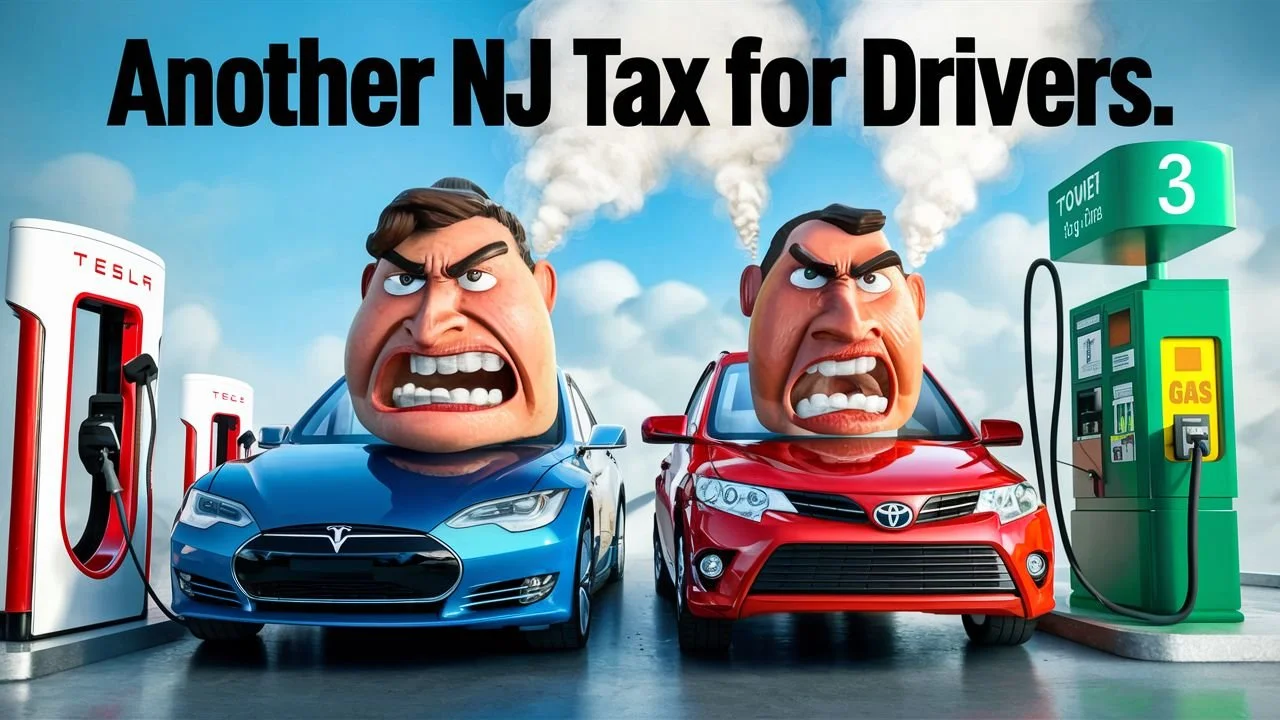Fill 'Er Up (With Taxes): No Matter How You Drive, New Jersey's Got You Covered!
Doesn’t matter what kind of car you drive, you are going to pay more in taxes or fees in New Jersey.
New Jersey's roads and bridges are in need of repair, and the state is looking to both traditional and innovative methods to fund their Transportation Trust Fund (TTF). As of March 2024, a bill is making its way through the legislature that would see a gradual increase in the gas tax alongside a new annual registration fee for electric vehicles (EVs).
This legislation has sparked debate. Let's delve into the details and explore the arguments for and against this new approach.
The Need for Funding
The TTF is the primary source of revenue for road and bridge repairs in New Jersey. Traditionally, this fund has relied heavily on the gas tax. However, with increasing fuel efficiency and the rise of EVs, gas tax revenue has been steadily declining. This funding gap threatens the state's ability to maintain its infrastructure.
The Gas Tax Hike
The proposed bill outlines a phased increase in the gas tax. Each year, the tax would rise by approximately two cents per gallon, resulting in a total increase of about 10 cents over five years. Proponents argue that this gradual rise will minimize the impact on drivers while ensuring a consistent revenue stream for the TTF.
The EV User Fee
The more contentious aspect of the bill is the introduction of a new annual registration fee for EVs. Starting at $250 and increasing to $290 over five years, this fee aims to ensure that EV owners contribute fairly to road maintenance.
Supporters of the fee argue that EVs still use the road network, causing wear and tear just like gas-powered vehicles. Additionally, EVs tend to be heavier, potentially contributing more to road damage.
Arguments Against the EV Fee
Opponents of the fee argue that it discourages the adoption of environmentally friendly vehicles. They point out that New Jersey already offers incentives for EV purchases, and adding a new fee could negate those efforts. Additionally, some argue that the current gas tax structure already unfairly burdens low-income drivers who may rely on older, less fuel-efficient vehicles.
Finding a Balance
The New Jersey legislation represents an attempt to balance the need for road maintenance with the environmental benefits of EVs. Here are some ongoing discussions surrounding the implementation:
The weight factor: Should the EV fee be based on weight to account for potential road damage?
Alternative revenue streams: Can the state explore additional funding sources beyond gas and EV fees, such as tolls or user-based insurance?
Future of EV technology: As battery ranges increase and charging infrastructure improves, will the gas tax become obsolete?
The Road Ahead
The New Jersey bill is a microcosm of a larger national debate. As more states grapple with declining gas tax revenue and the need to maintain their infrastructure, innovative solutions will be necessary. Whether the proposed legislation paves the way for a sustainable funding model or requires further refinement remains to be seen.
This blog post has only scratched the surface of this complex issue. It's important to stay informed and voice your opinion to your local representatives as the bill progresses through the legislature.
